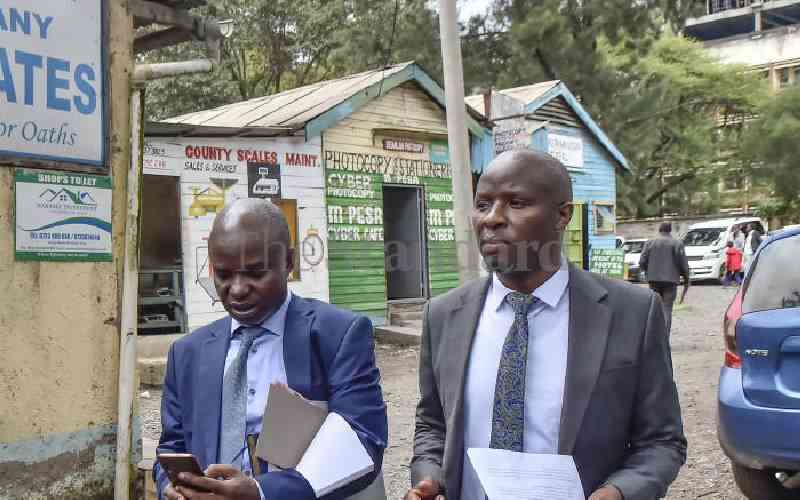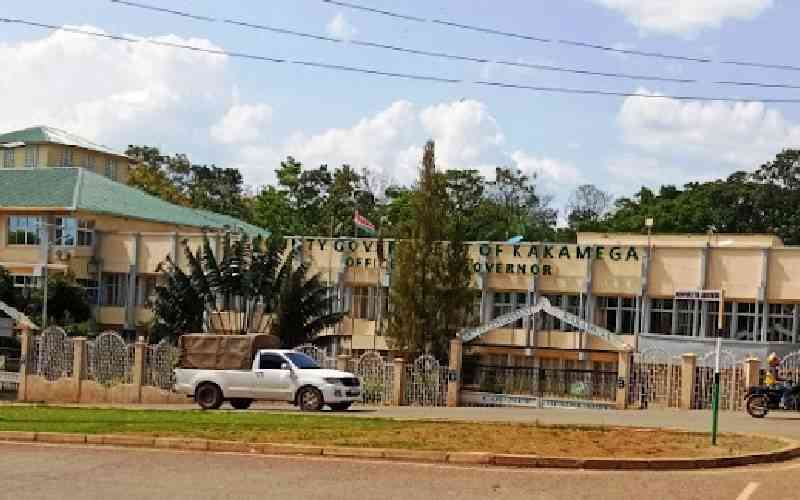In the public imagination, the story of squatters at the Coast is characterised by poverty and inferior living conditions.
Most people imagine that squatters are living in highly squeezed areas made of shacks or temporary houses with no access to essential services like health, clear water and health services.
The opposite is true when talking about the now famous Waitiki Farm in Likoni, Mombasa. The government estimates that 120,000 people live on this land, allegedly subdivided and sold cheaply but, illegally, to non-suspecting buyers, said to be holding fake allotment letters and titles.
Contrary to expectations, Waitiki Farm is not a farm in the conventional sense for it has neither crops, animals nor cultivated land, thanks to the invasions that transformed this once thriving agricultural farm into a crowded residential area.
Despite the changes, Evanson Waitiki’s disputed property remains a farm. A drive on the dusty roads of the 930-acre parcel of land displays residential estates with modern houses whose owners include some local political leaders. The farm is now Mombasa’s rising suburb for the middle class.
The farm is situated in Timbwani ward and area Member of County Assembly (MCA) Ton Ogola says several political leaders own commercial houses in the area. There are reports the government may be planning to purchase the farm for otherwise rich people.
“There are political leaders who own plots here from Frere Town, Port Reitz, Shanzu and Taita-Taveta Counties,” he says.
Lands Cabinet Secretary Charity Ngilu and National Land Commission Chairman Muhamad Swazuri say the government had reached an agreement with the owner of the land and that it will purchase it to settle squatters. But Waitiki has since denied the existence of such a deal and tabled a Sh10 million per acre offer meaning that he demands Sh9.3 billion to sell his land.
Most landlords in the area are third buyers who have constructed modern residential houses and luxury apartments despite uncertainty following several eviction orders issued by the courts.
According to Nyale Chiti, a landlord of two houses in the area, the ‘Mapuyanga’ sold them the land at a throw-away price of between Sh200,000 and Sh450,000 depending on the size of the plot.
Mapuyanga is a local dialect referring to the faceless group of brokers who spearheaded the first invasions in the mid 1990s, subdivision and ‘sale’ and still control the area through illegal levies.
“But they (Mapuyanga) also charge a fee of between Sh20,000 and Sh40,000 for any transaction on land in the area,” says Chiti.
Waitiki farm was famous for its thriving agricultural activities with high-grade dairy cattle and orchards, until the 1997 tribal clashes in Likoni.
Members of the indigenous Digo community invaded and occupied the land. According to Waitiki, the farm initially had 900 head of cattle and 300,000 chicken which he acquired using Sh1.2 million loan from Agriculture Finance Corporation (AFC) he acquired in mid 1970s. This number kept growing by day. He also planted trees that generated fruits.
In his estimates, the farm then generated Sh1 million per month through sale of fresh milk, beef, chicken and fruits which he exported to South Africa, Europe and even Saudi Arabia.
Stay informed. Subscribe to our newsletter
During the 1997 infamous Likoni clashes, Waitiki was allegedly forcefully evicted from his farm and the raiders slaughtered more than 1,000 head of cattle and 800,000 chicken in the farm.
Chiti, a proprietor of two houses in the area, is still fighting over little land still available and is ready to buy existing structures, demolish them and put up modern houses.
Chiti and his wife, Phyllis Kilingu, former employees of Kenya Ports Authority (KPA) say they used all their retirement benefits to buy land at the farm which and they have since built a number of Swahili houses on the land.
He says that serving KPA for 27 years, he retired in April 2009 and though he was aware of the ownership controversies on the land, in May the same year he bought an unfinished house at a cost of Sh465,000 in the area and spent over Sh1.6 million to complete it.
His wife also retired from KPA in January last year and bought an adjacent plot measuring 60 by 40 using her retirement benefits and erected a rental house at an estimated cost of Sh2 million. Mzee Chiti estimates their initial total investment on the controversial Waitiki land at Sh3.6 million. This appreciates with time.
“The first house has nine rooms that we charge Sh3, 000 per room as rent while the second house has three houses each with three bedrooms and I charge Sh18,000 for each,” he says.
Salim Silim, also a KPA retiree says he spent over Sh5 million to construct four houses at the farm.
“Let us not lie that we did not know that this was Waitiki’s land before we bought it. Those demanding that the government pays are those who have not invested here,” said the 60-year-old Silim.
He says if the government cannot pay, it should come up with a formula to raise the Sh10 billion, including dividing the money among landowners in the area.
 The Standard Group Plc is a
multi-media organization with investments in media platforms spanning newspaper
print operations, television, radio broadcasting, digital and online services. The
Standard Group is recognized as a leading multi-media house in Kenya with a key
influence in matters of national and international interest.
The Standard Group Plc is a
multi-media organization with investments in media platforms spanning newspaper
print operations, television, radio broadcasting, digital and online services. The
Standard Group is recognized as a leading multi-media house in Kenya with a key
influence in matters of national and international interest.
 The Standard Group Plc is a
multi-media organization with investments in media platforms spanning newspaper
print operations, television, radio broadcasting, digital and online services. The
Standard Group is recognized as a leading multi-media house in Kenya with a key
influence in matters of national and international interest.
The Standard Group Plc is a
multi-media organization with investments in media platforms spanning newspaper
print operations, television, radio broadcasting, digital and online services. The
Standard Group is recognized as a leading multi-media house in Kenya with a key
influence in matters of national and international interest.








